Subtotal: $47.00
3-Day Advanced Grief Counseling Certification Course – Diana Sebzda
$599.00 $149.00
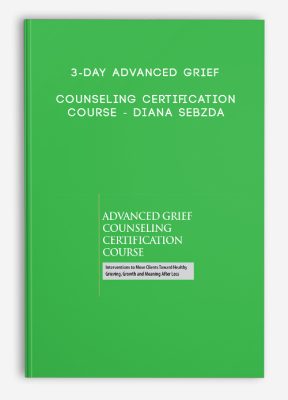
3-Day Advanced Grief Counseling Certification Course – Diana Sebzda
Sale Page
Archive Page
Get 3-Day Advanced Grief Counseling Certification Course – Diana Sebzda on Salaedu.com
Description:
A wave of grief and loss has impacted millions of people and more clients than ever before are seeking the help of professionals.
But if you’re like many therapists, in-depth training on counseling and treating grieving clients wasn’t part of your graduate program.
How can you make sure you’re ready to work with this rapidly growing client population?
This all new 3-day grief certification training features 2 of our very best received trainers in the area of grief and bereavement – both highly experienced clinicians with decades of experience in the field. Together they will provide you with the tools, techniques and clinical know-how to counsel and treat clients across the lifespan whose lives have been upended by losses of all kinds.
And unlike other trainings, this program will go beyond the basics, growing your clinical skills and confidence with interactive exercises, expert guidance, practical tips, and real-world case studies so you know exactly how to:
- Uncover grief intensity and assess for risks like suicidal ideation
- Recognize and respond to grief types with appropriate treatment plans
- Employ over 30 specific clinical tools to facilitate healthy grieving and build resiliency
- Successfully structure and facilitate grief support or treatment groups
- And much more!
Outline:
The Process of Death, Dying, and Mourning
Grief and Loss Across Developmental and Life Stages
- Distinctions between adult and youth responses to loss
- Common grief reactions and coping mechanisms
- Factors for assessing and counseling kids and teens at schools
- The elderly – working with multiple losses, fewer supports and/or physical health issues
- Ethics with minors, families, and the terminally ill
Types of Grief:
Implications for Counseling and Treatment
- Normal grief and acute reactions
- Complicated or prolonged grief
- Persistent Complex Bereavement Disorder
- Ambiguous grief in the face of changes in the living
- Chronic grief
- Traumatic grief following sudden or violent loss
- Anticipatory and disenfranchised grief
- Delayed, inhibited, abbreviated other types of commonly overlooked grief
The Impact of Loss on the Family System
- Impact on adult caregivers and siblings
- Family adaptation to loss
- Changing the family narrative
- Intergenerational effect of grief and trauma
Contemporary Models of Bereavement for Grief Therapy
Assessment of Grieving Clients:
Uncover Trauma, Depression, Substance Use, Suicidal Ideation, and More
- Intakes and gathering information
- Two assessment measures for gathering grief responses
- Assessment for depression, PTSD, trauma, substance use, anxiety, suicidal ideation, and violence
Differential Diagnosis
- Differential diagnosis between uncomplicated and complicated grief
- Persistent Complex Bereavement Disorder
- Differential using the DSM-5™ and upcoming DSM5-TR
Treatment Planning for Uncomplicated and Complicated Grief
- Uncomplicated grief treatment planning
- Grief counseling vs. grief therapy
- Specific objectives based on the client’s grieving process
- Complicated Grief Therapy
- Narrative Reconstruction Therapy for complicated grief
- Integrative Cognitive Behavioral Treatment for complicated grief
- Specific objectives for complicated grief
Interventions and Treatment Approaches to Facilitate Healthy Grieving
- Narrative and somatic techniques
- Expressive arts techniques – music, writing, art, and more
- Interventions for regret, forgiveness, shame, and guilt
- Continued bonds and therapeutic bereavement rituals
- Nature-based therapy
- Systematic desensitization and flooding to reduce avoidance
- EMDR for complicated grief and traumatic loss
Non-Death and Abstract Losses:
How to Effectively Work with Clients Who’ve Experienced “Living Losses”
- End of relationship
- Chronic illness and terminal illness
- Deployment, job and/or retirement
- Infertility, independence, and identity
- Safety, meaning, and purpose
- Spirituality and religion
- Potential futures
Build Clients’ Resiliency and Move Them Toward Post-Traumatic Growth
- Defining resiliency and post-traumatic growth
- Employing a client’s strengths
- Considerations to foster growth with traumatic and suicide loss
The Clinician’s Guide to Grief and Loss Groups:
How to Successfully Structure and Facilitate Grief Support or Treatment Groups
- Differences between psychoeducational and therapeutic groups
- Open vs. closed groups
- Homogeneous vs. heterogeneous groups
- Peer vs. clinician led
- Participant screening and keys to effective facilitation
Grief Work with Clients of Diverse Race, Backgrounds, Cultures, and Beliefs
- Cultural competency vs. culturally and difference intentioned/aware practice
- Disenfranchised grief
- How culture impacts mourning, rituals, expectation, and continued bonds
- Working with spiritual and religious differences between clinician and client
Ethical Considerations in Grief Counseling and Treatment
- Boundaries of professional competence and when to refer out
- Research and treatment risks
- Compassion fatigue
- Self-care as an ethical imperative
NLP online course
So what is NLP?
Firstly, NLP stands for Neuro-Linguistic Programming. Secondly neuro refers to your neurology;
Thirdly linguistic refers to language however, programming refers to how that neural language functions.
As a result,In other words, learning NLP is like learning the language of your own mind!
Moreover, NLP is the study of excellent communication–both with yourself, and with others.
It was developed by modeling excellent communicators and therapists who got results with their clients.
NLP is a set of tools and techniques, but it is so much more than that.
In conclusion, It is an attitude and a methodology of knowing how to achieve your goals and get results.
1 review for 3-Day Advanced Grief Counseling Certification Course – Diana Sebzda
Add a review Cancel reply
Related products
HYPNOSIS - NLP Courses
HYPNOSIS - NLP Courses
HYPNOSIS - NLP Courses
HYPNOSIS - NLP Courses
HYPNOSIS - NLP Courses
Christina Hall – The Paradoxical Nature of Change – Video Book

 Deepak Wayne - The Ultimate Seduction Model
Deepak Wayne - The Ultimate Seduction Model 
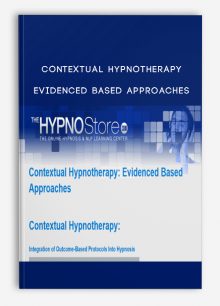

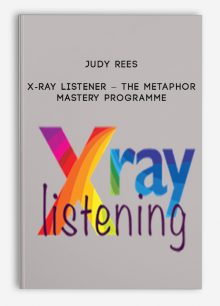

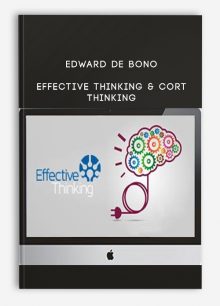


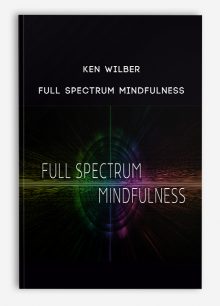
king –
“We encourage customers to contact Customer Service and think twice before making payment. All course contents will be similar to what is from the author.”
Thank you!